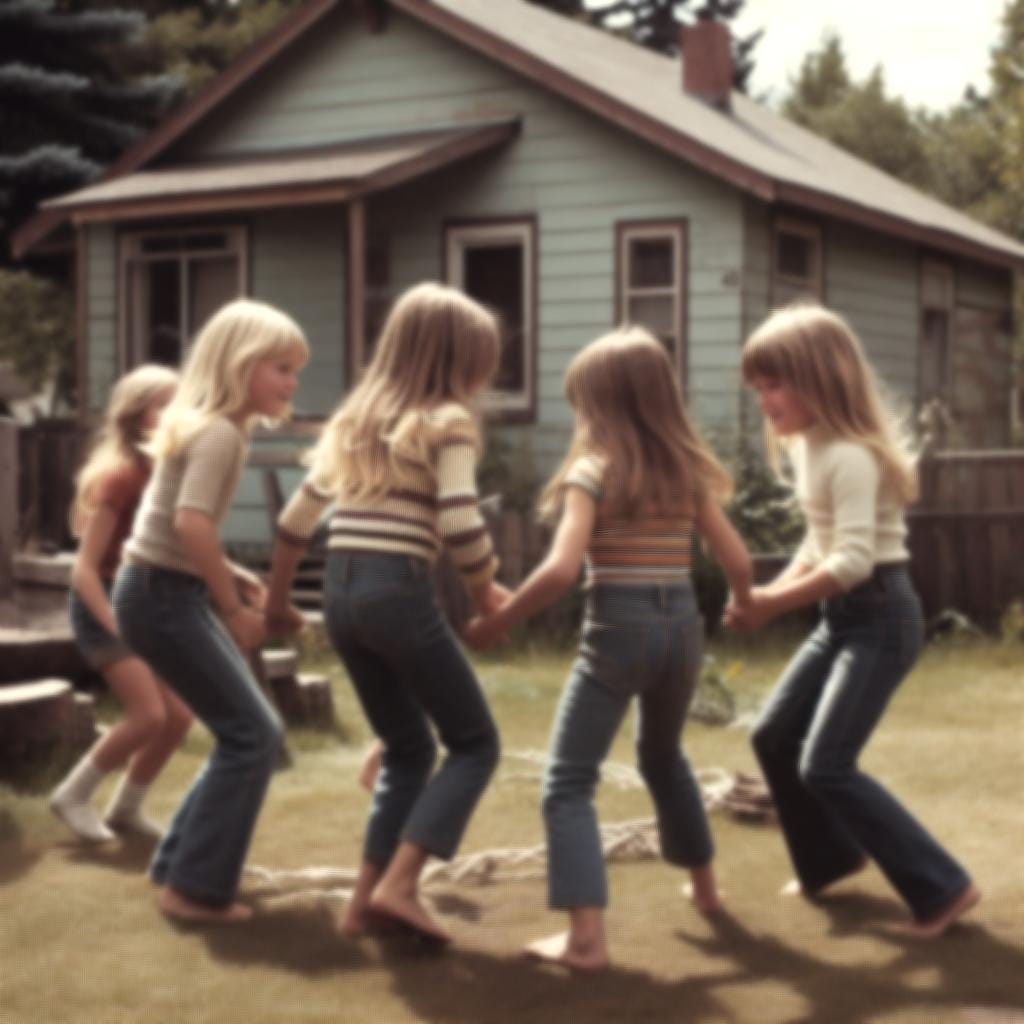Sliding down the side of the garage.
Letting all thoughts rise from my consciousness like steam.
Crumpling into a heap on the grass.
Escaping the noise for a minute or two until the faces staring down at me come into focus.
Three or four more of the group waiting their turn.
It was a strange high, but we all wrongly figured it was safer than consuming drugs. Drugs that were readily available, even in my own backyard where my brother grew a patch of marijuana plants hidden behind the dog pen so our mother would never see that garden. Even in the palm of a friend’s hand shaped like a little pink square, offered to me freely as early as 5th grade.
I had refused, but that didn’t mean I was immune to addictive behavior.
The fainting game we played as young children seemed like harmless fun, but viewing it as an adult scares the living daylights out of me. If I caught my kids doing this, I’m sure I would have a panic attack.
I hesitate to describe this, but I trust no impressionable children are reading my story.
We took turns—one player bent down, hands on her knees and hyperventilated on purpose. As soon as the desired dizziness took effect, she held her breath and stood up, back against the wall, while player two would press her chest until she fainted. She might experience some interesting dreams during the lapse, but for sure, she would feel a few moments of a pleasant floating sensation. We were fascinated with the possibility of levitation or some such strange phenomena we thought we could induce.
The kids and I would laugh off the things we were trying to escape. A few moments of euphoria might help us deal with real life afterward, we reasoned. Similar to a drug. However, this was a much shorter fix.
And that’s why we took more turns at the game.
Who taught us this method of coping? I have no idea. Who teaches youngsters that drugs will help them feel better able to function? It’s quite a feat to overcome those powerful draws—especially once you’ve tasted them.
At some point in our young, developing minds, we thought maybe we should quit this little game of ours. We heard something about killing brain cells, but addictive behavior puts up a strong fight against reason.
Finally, one day when it was my friend’s turn, and we helped her fall to the ground as delicately as we could, we watched for her to regain consciousness. This time took longer than usual, and then her limbs began to shake. I don’t know how we were old enough to know what convulsions were, but we named the shakes as such. We frantically woke her and helped her find her bearings. She was okay, thankfully.
This scared us enough to quit.
I don’t know if the others ever told anyone. No one suggested seeing a doctor. No one got in trouble. When I told my mom about our game, she implored,
“Don’t you ever do this again.”
I don’t think the fear of it kept her up at nights, though, like it would me as a mom. Or like it did me as a child, replaying that vision of my friend convulsing on the grass in my backyard. What an insidious game that popped into the heads of the children in my neighborhood.
How many of us replaced that game with similar coping mechanisms in adulthood?
I thank God I retained enough brain cells to search for healthier options. I found some healthy adults and mentors too. Some of them are no longer on earth, and I wish I could express to them how much they meant to me. I look up often now and say,
“Where would I be without you?”
For those of us who have stumbled around the darkness, groping the wall, and finally found the switch, maybe we can be that person, that inspiration, for someone else and turn on the light.
[Not all memories of my past are positive, but when one keeps bubbling to the surface of my thoughts, I am compelled to write about it. I figure there must be a reason— If you leave a ♥️, it helps others see this story . . . and maybe a reason.] 🔗 Writing About the Past
Are you finding the light?






Yikes, Shell, you are so right about those dangerous games. The only good news is, like all negative (Ha Ha! and positive) experiences, they are behind us. Those experiences helped make us who we are today. When I was a child, I played a now banned game called DodgeBall. It was fun, even though the many blows we took to our heads, trunk and extremities make us wince and, sometimes cry. Our fainting game involved having a "friend" squeeze our neck (pressing on our carotid artery bulbs) until we passed out. Looking back on it, it was idiocy. I have never spoken or written of it until now. The good news: it is in my past. If I saw one of my grandchildren doing those things, what would I say? Would they listen? I didn't.
I commend you for writing this. The older I get the more I learn that there is just no end to the different life experiences that exist in the world.